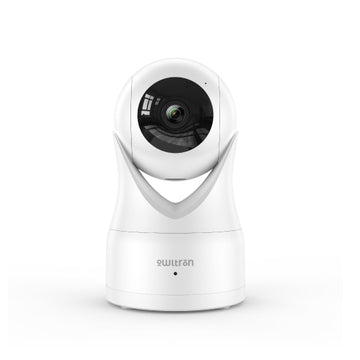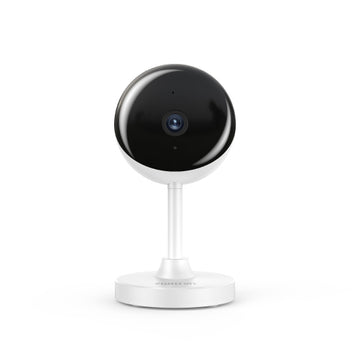Being a mother to a young baby is a rewarding and transformative experience, but it can also come with its fair share of challenges.
From prioritizing postpartum recovery to addressing breastfeeding difficulties, managing postpartum depression and anxiety, and finding ways to get enough sleep. In this blog post, we will provide practical tips and strategies to help mothers navigate these challenges effectively.
Contents
- Postpartum Recovery
- Breastfeeding Support
- Managing Postpartum Depression and Anxiety
- Getting Enough Sleep
Postpartum Recovery
The postpartum period is a crucial time for a mother's physical and emotional recovery after giving birth. Taking care of yourself during this phase is essential for restoring your energy, healing your body, and adjusting to the new demands of motherhood. Here are some tips to manage postpartum pain and aid in recovery:
-
Apply cold or warm compresses
Applying cold or warm compresses to the perineal area can help reduce pain and swelling after vaginal delivery. Cold compresses help numb the area and reduce inflammation, while warm compresses increase blood flow and promote healing.
-
Practice relaxation techniques
Engaging in relaxation techniques like deep breathing, meditation, or gentle stretching exercises can help manage postpartum discomfort. These techniques promote relaxation, reduce muscle tension, and alleviate stress, leading to pain relief.
-
Maintain good posture and body mechanics
Paying attention to your posture and body mechanics while breastfeeding, lifting your baby, or performing daily activities can prevent strain on your muscles and joints, reducing postpartum discomfort. Maintaining proper alignment and using supportive pillows or cushions can help alleviate pain.

-
Engage in gentle exercises
Gradual re-introduction of gentle exercises, such as walking or pelvic floor exercises, after consulting with your healthcare provider can aid in postpartum recovery, improve muscle tone, and reduce pain. These exercises help strengthen the abdominal and pelvic floor muscles.
Breastfeeding Support
Breastfeeding support can be crucial for new mothers seeking guidance and assistance. Here are some tips to find breastfeeding support:
-
Seek help from a lactation consultant
Lactation consultants are trained professionals who specialize in breastfeeding support. They can provide guidance, address challenges, and offer personalized advice.
-
Join a breastfeeding support group
Connecting with other breastfeeding moms can provide valuable support and advice. Look for local support groups, either in-person or online, where you can share experiences, seek guidance, and learn from others who have been through similar situations.
-
Try different breastfeeding positions
Experimenting with various breastfeeding positions can help improve latch and comfort for both you and your baby. Some common positions include the cradle hold, cross-cradle hold, football hold, and side-lying position.
-
Consider using a breast pump
If you're experiencing challenges with milk supply or need to express milk for various reasons, using a breast pump can be beneficial. Pumping can help stimulate milk production and maintain supply. Incorporating regular pumping sessions into your routine, especially after or between breastfeeding sessions, can aid in increasing your milk supply.
Managing Postpartum Depression and Anxiety
Postpartum Depression and Anxiety are common mental health conditions that can affect new mothers, manifesting in various emotional, physical, and behavioral symptoms. Recognizing these signs is crucial in seeking appropriate help and developing effective coping mechanisms.
Postpartum depression symptoms may include:
- Depressed mood or severe mood swings
- Crying too much
- Difficulty bonding with your baby
- Withdrawing from family and friends
- Loss of appetite or eating much more than usual
- Inability to sleep, called insomnia, or sleeping too much
- Overwhelming tiredness or loss of energy
- Less interest and pleasure in activities you used to enjoy
- Intense irritability and anger
Here are tips to manage these conditions:
-
Seek professional help
If you experience signs and symptoms of postpartum depression or anxiety, reach out to a healthcare professional for support and treatment options.
-
Practice self-care activities
Make time for self-care, such as taking walks, practicing mindfulness, or engaging in hobbies that bring you joy and relaxation.
-
Build a support system
Surround yourself with understanding family members, friends, or support groups who can offer emotional support and lend a helping hand when needed.
Remember, managing postpartum depression and anxiety takes time and patience. Celebrate even the smallest victories and be gentle with yourself throughout the process. You deserve all the love and support as you navigate this journey.
Getting Enough Sleep

As a mother, getting enough sleep can be a challenge. Balancing childcare, household responsibilities, and other commitments often leaves little time for rest. However, prioritizing your sleep is essential for your well-being and ability to be the best mother you can be. By implementing strategies and making sleep a priority, you can ensure you get the rest you need. Let's explore practical tips to help you achieve a better night's sleep and wake up refreshed for the joys and challenges of motherhood.
-
Nap when the baby sleeps
Take advantage of your baby's nap time to catch up on sleep. Instead of trying to get chores done, prioritize your rest and sleep when your baby sleeps.
-
Hire a babysitter or ask for help
Consider hiring a trusted babysitter or asking a family member or friend to help you with the baby for a few hours each week. Use this time to sleep or rest, knowing that your baby is in good hands.
-
Utilize a baby monitor
Investing in a reliable baby monitor can provide you with peace of mind. With a monitor, you can keep an ear out for your baby's needs while resting in a separate room. This allows you to respond quickly when necessary, without needing to be physically present at all times.
-
Optimize your sleep environment
Ensure your bedroom is conducive to quality sleep. Keep the room cool, dark, and quiet. Use blackout curtains, earplugs, or a sleep mask to minimize any external disturbances that might disrupt your sleep.
Conclusion
Motherhood is a journey filled with joys and challenges. By implementing the tips and strategies outlined in this blog post, mothers can effectively manage postpartum recovery, breastfeeding, postpartum depression, anxiety, and sleep deprivation. Remember to seek support, connect with others, and prioritize self-care. Embrace the beautiful moments and be confident in your ability to navigate the challenges that come with being a mother. You're doing an incredible job!
Reference source
- The American College of Obstetricians and Gynecologists. (2018). Postpartum Pain Management. Retrieved from https://www.acog.org/clinical/clinical-guidance/committee-opinion/articles/2018/03/postpartum-pain-management
- Smith, C. A., Levett, K. M., Collins, C. T., & Jones, L. (2018). Massage, reflexology and other manual methods for pain management in labour. The Cochrane Database of Systematic Reviews, 3, CD009290.
- American Academy of Family Physicians. (2019). Postpartum Care: Pain Management. Retrieved from https://www.aafp.org/afp/2019/0401/p437.html
- The American College of Obstetricians and Gynecologists. (2018). Exercise After Pregnancy. Retrieved from https://www.acog.org/womens-health/faqs/exercise-after-pregnancy]
- Mayo Clinic. (2022, June 30). Breastfeeding positions: Do what works best for you. Retrieved fromhttps://www.mayoclinic.org/healthy-lifestyle/infant-and-toddler-health/in-depth/breast-feeding/art-20047138
- Centers for Disease Control and Prevention. (2021, June 29). Increasing milk supply. Retrieved from https://www.cdc.gov/breastfeeding/breastfeeding-special-circumstances/diet-and-micronutrients/increasing-milk-supply.html







